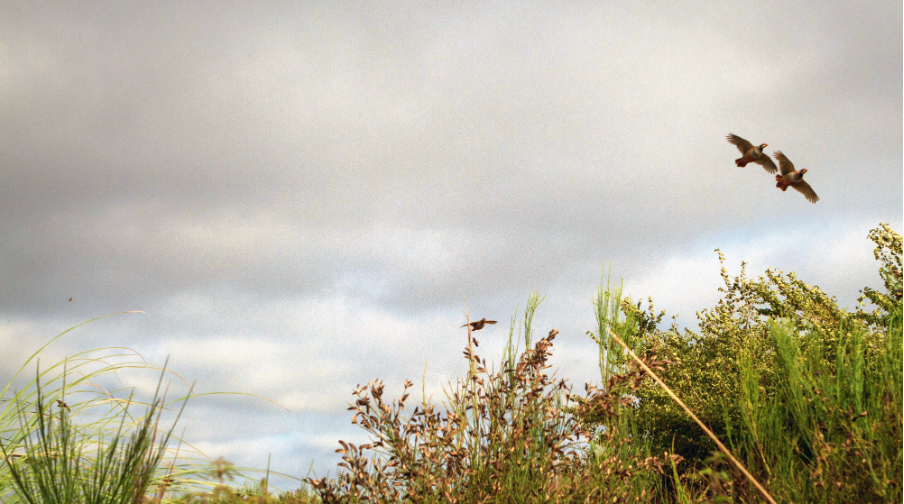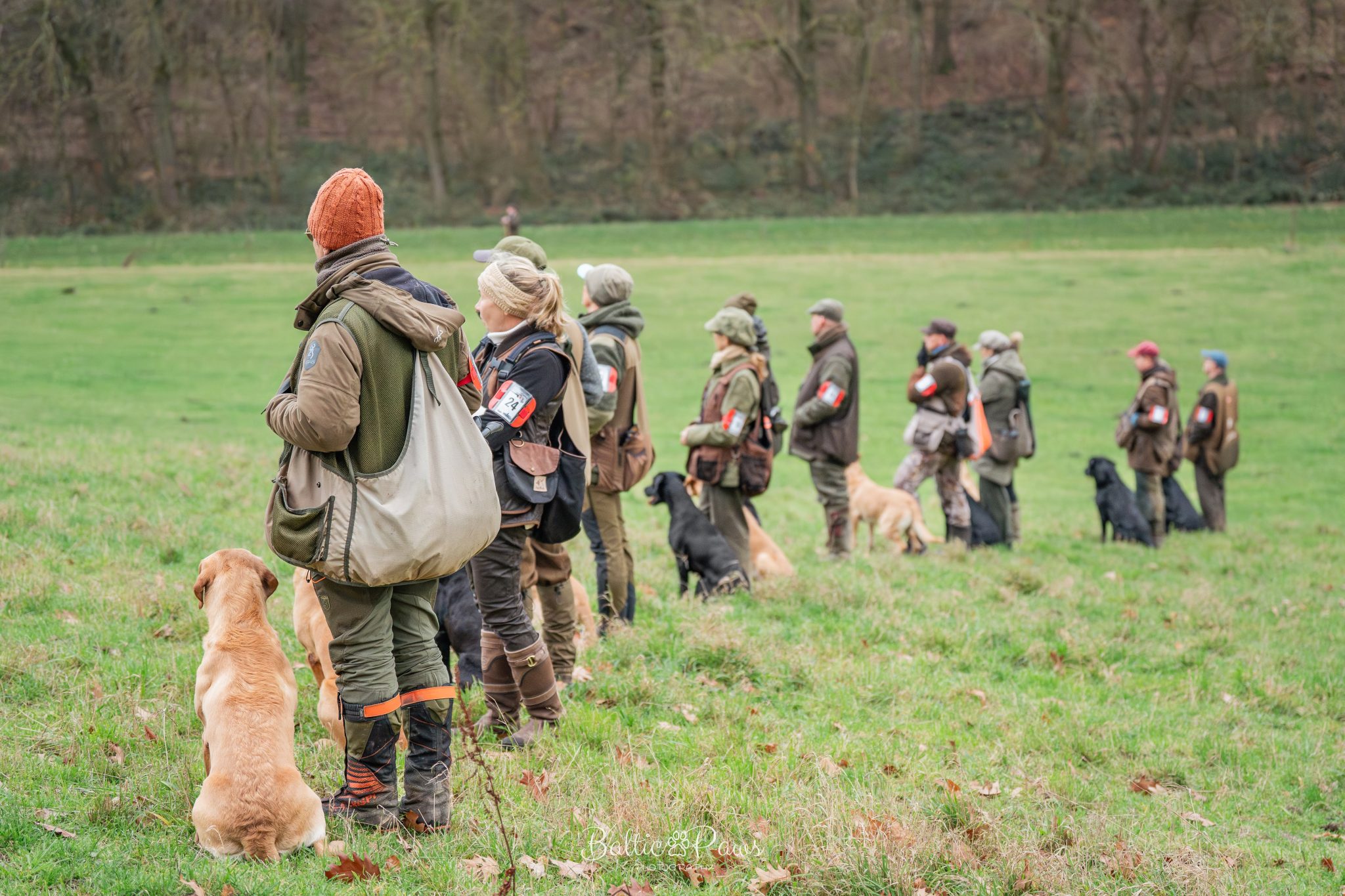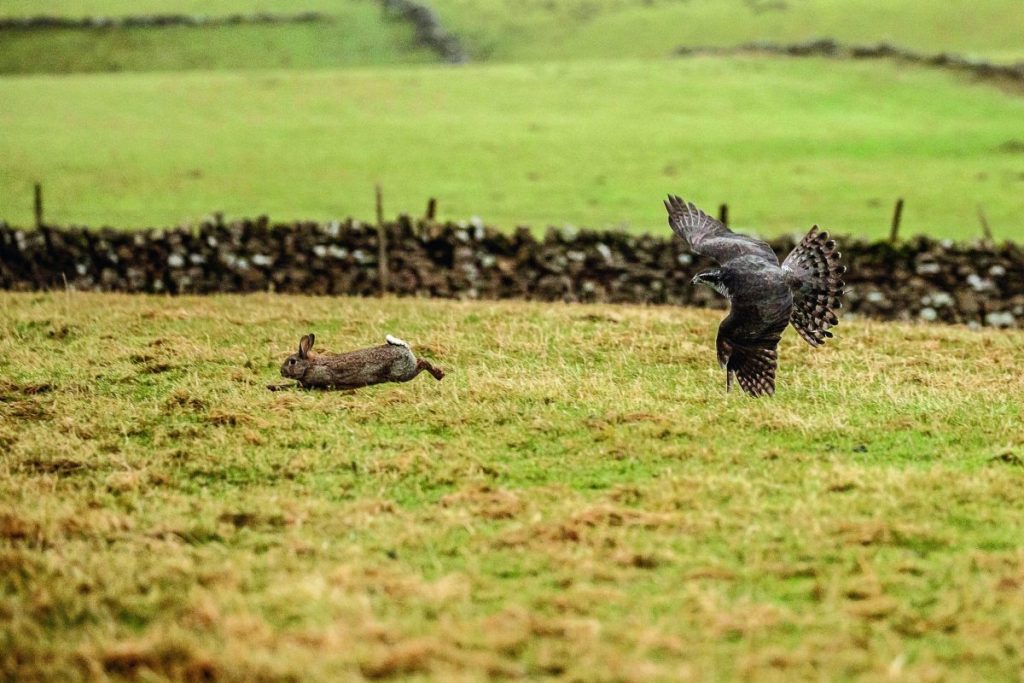The countdown is on for The British Shooting Show – book tickets online today and save on gate price!
The quest for genetic purity
Those concerned with presentation of birds and seasonal returns might be best buying in purebred Alectoris rufa from Portugal. Egg and poult producer Bryan Johnston explains

The outbreak of avian influenza – or bird flu – that occurred in 2022 resulted in a ban on the importation of game eggs from France to the UK. As a consequence, the price of red-legged partridge eggs soared to as much as €2 per egg, and shoots and game producers had to go further afield in Europe to find alternative suppliers.
It is possible this change of egg supply meant an increased number of hybridised partridges were released in the UK. This possibility seems to have been confirmed by the number of shoots that purchased eggs from Spain and later reported having large specimens of lazy partridges with solid black markings that were difficult to get going.
While visiting friends in Lisbon that year, I was introduced to Fernando Jorge Ferreira and his two sons, António and João. The family runs Caçabrava, the largest producer of pure redleg partridge eggs in Portugal. After meeting them, it became clear their passion for genetic purity is evident in everything they do. João, a qualified vet and breeder of Aberdeen Angus cattle, has worked in the UK, and was a key member of the team investigating disease in grouse in 2010.
António , who is also a vet, runs the Caçabrava egg production and hatchery with his father. They have their own onsite laboratory and veterinarian pharmacy, which means health issues in stock can be rapidly resolved, often within 24 hours.
Increasing demand
Caçabrava was established more than 40 years ago by Fernando Jorge when he left the family poultry business to concentrate on his passion for gamebirds. When a major French company’s egg-producing farm in Alcácer do Sal became available, Fernando Jorge purchased it to meet the ever-increasing demand for wild pure redleg partridges for the Portuguese and Spanish market.
The focus for Caçabrava has always been genetic purity and selection is not based on production traits, but on phenotypical and habitual traits. The quest for purity was not only a result of personal preference, but also as a result of the stringent laws imposed by the Portuguese government.
The release of chukar partridge was banned in the UK in 1992, but what about hybrids? The Portuguese government had addressed a similar issue previously. With Law 311/87 of 10 August 1987, it enshrined in law a measure that aimed to protect the genetic standard of the red-legged partridge, Alectoris rufa.
The second article of this law stipulates the following: “It is forbidden to breed in captivity for repopulation purposes partridges of the species Alectoris Graeca, Alectoris Chukar, Alectoris Barbara or hybrids of these with Alectoris rufa.”
With this rule, the competent public authorities began to take measures to control the genetics of birds produced in captivity for game repopulation, seeking to protect all the natural characteristics of the Alectoris rufa species. Since then, the Portuguese government has perfected techniques to analyse the genetics of partridges produced in captivity. Failure to comply with this rule would lead to heavy fines and, in some cases, the closure of the establishments where the partridges were produced.
This meant it was only possible to produce Alectoris rufa in captivity in Portugal and any imported birds must meet the genetic test. Every egg producer must declare the number of birds they will have for the new breeding season as well as subjecting them to mandatory tests. Unlike the UK and some other European countries, this law is vigorously enforced, with the tagging of breeding stock and the issuing of licences and certificates to verify genetic purity.
According to the third article of Ministerial Order no 487/95, the following rule was established: “The granting of a licence for the breeding and reproduction of the red partridge (Alectoris rufa) in captivity complies with the general requirements of this decree and may only take place after prior inspection of the breeding specimens, marking and verification of their genetic purity… A competent public entity will issue the licence for the breeding of the red partridge and a certificate of genetic purity of the breeding specimens.”
Slaughtered
If the genetic purity of the partridges is not confirmed, “the person legally responsible for the exploitation will be notified of the result of the analysis and of the decision ordering the animals to be slaughtered”.
On the 10th article of the same Ministerial Order the following rule is established: “Live specimens and eggs of Alectoris rufa from the community and third countries shall be subject to control at the place of destination through sequestration to confirm their genetic purity, which shall comply with the specific conditions.”
Also stipulated is: “In restocking activities, the good health of the specimens used must be guaranteed, as well as the genetic purity of the populations from which they come.”
Due to their wildness, pure redlegs are not the first choice for egg producers because they are difficult to manage in a laying system compared with their laid-back French cousins. They are more aggressive and difficult to pair. This may result in fewer eggs, with an average of 40 eggs per pair, compared with 60-plus for hybrids. This is one of reasons why French partridge egg producers no longer operate in Portugal.
The Portuguese stock is noticeably smaller and more compact than French-produced birds and they have a more vibrant red on their beaks, eyes and legs. Results have also shown that the mortality rates for these Portuguese pure specimens is much lower – between one day old and 14 weeks. And the pure partridge exhibits a higher disease resistance than their hybrid cousins. All stock is blood tested and mycoplasma-free. According to keepers, the birds are also savvier when released, hardier when it comes to severe weather conditions and form smaller coveys, which may help reduce predation. All this means more birds on the ground at the end of the season.
Three Scottish shoots in Angus and South Aberdeenshire that release only Portuguese partridges have seen significant improvements in returns in 2023-24 and 2024-25. One has been able to increase its bag by 25% through to the end of the 2023-24 season with a return of 54% of birds released. These birds are much better adapted to the harsh environment of the Highlands. Rain, snow and sub-zero temperatures do not deter them. Some birds have even been shot with ice on their tails.
There have been various studies between 1996 and 2008 on the effects of hybridisation in partridges that support this evidence. One says: “Hybridisation may also result in the loss of unique genetic, morphological, behavioural or ecological characteristics that have evolved… leaving hybrid populations less well adapted to local environments [Rhymer & Simberloff, 1996].
“As a result, outbreeding depression and disruption of the co-adapted gene complexes may manifest in a number of different ways, including reduced fertilization success, reduced embryonic survival, lower disease or pathogen resistance, ineffective foraging ability, reduced predation survival and reduced capacity to tolerate physiological stress [Vamosi, Hatfield & Schluter, 2000; Edmands, 2007; Hutchings & Fraser, 2008].”
The introduction of chukar blood may improve egg-laying ability, but given the evidence of the studies, what could be lost in their genetic profile? It’s hard to say what percentage of loss occurs after release from predation, starvation or inclement weather, but those who only release Portuguese partridges all report an abundance of birds at the end of the season.
Eggs, day olds and poults from Caçabrava stock are available exclusively from Wescom Incubators Ltd, wescomincubators@aol.co.uk 07715 868942 and Allgame Ltd, info@allgameltd.co.uk 07974 181812
Related Articles
Get the latest news delivered direct to your door
Subscribe to Shooting Times & Country
Discover the ultimate companion for field sports enthusiasts with Shooting Times & Country Magazine, the UK’s leading weekly publication that has been at the forefront of shooting culture since 1882. Subscribers gain access to expert tips, comprehensive gear reviews, seasonal advice and a vibrant community of like-minded shooters.
Save on shop price when you subscribe with weekly issues featuring in-depth articles on gundog training, exclusive member offers and access to the digital back issue library. A Shooting Times & Country subscription is more than a magazine, don’t just read about the countryside; immerse yourself in its most authoritative and engaging publication.







